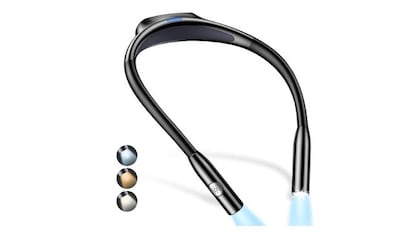Why erectile dysfunction can increase the risk of heart disease
Men who have vascular-related impotence are twice as likely to suffer a heart attack, stroke or sudden cardiac death

As well as seeing a urologist for erectile dysfunction (ED), men should also make an appointment with a cardiologist. That’s the conclusion of a four-year study published in the medical journal Circulation, which found that men who experience vascular-related impotence are twice as likely to suffer a heart attack, stroke or sudden cardiac death.
Overview of study
The study tracked the heart health of almost 1,900 men, aged 60 to 78, with and without vascular-related ED. Erectile dysfunction can sometimes be related to emotional issues such as anxiety or other psychological concerns. However, if men are experiencing impotence related to vascular problems it may be a sign of sub-clinical cardiovascular dysfunction. Vascular ED is the result of arterial blockage and insufficient blood flow.
Around one in five men over the age of 20 have trouble sustaining an erection
It is well known that for some men ED can be associated with cardiovascular problems. But experts have believed this was primarily due to obesity, high blood pressure and diabetes. Depression and the use of medication were also linked to the relationship between ED and cardiovascular problems. But this study has shown that simply having ED is a significant risk factor.
For the study, researchers recruited participants from across several US cities. Over the course of four years, 115 men had a serious heart problem, such as a heart attack, stroke or cardiac arrest. Over 6% of men with impotence had a problem, compared with just under 3% of sexually healthy men. Around one in five men over the age of 20 have trouble sustaining an erection.
Takeaway message
The message from this study is that healthcare providers should consider ED as a risk factor when assessing cardiovascular risk among middle-aged men. Men should also be aware that if they are having problems with impotence, it could be related to a serious cardiovascular issue. Men need to address this possibility with their doctor and from there determine the proper steps to take.
If you have a problem with impotence, it could be related to a serious cardiovascular issue
Even though ED becomes more common as men age, it does not have to be part of the aging process. There are several things men can do to prevent ED or at least delay its onset. These include:
- Eat healthy food. Men should eat foods that promote good blood flow and allow blood to flow to and within the penis. This will help them to achieve a firm erection. Follow a diet that includes lots of fruits and vegetables and avoid foods that are fried, fatty and processed.
- Maintain a healthy weight. Being overweight can lead to many health problems, including type 2 diabetes, which can cause nerve damage throughout the body. If diabetes affects the nerves that supply the penis, it can result in ED.
- Maintain healthy blood pressure and cholesterol levels. High cholesterol and high blood pressure can damage blood vessels, including those that bring blood to the penis, and cause ED.
- Drink alcohol in moderation or not at all. There is no evidence that mild or even moderate alcohol consumption increases the risk of ED. But chronic heavy drinking can cause liver damage, nerve damage and other conditions that interfere with the normal balance of male sex hormones and lead to ED.
- Exercise regularly. Living a sedentary lifestyle can result in ED. Practice aerobic exercises such as running, swimming and brisk walking to lower the risk of impotence.
- Stop smoking. Smoking cigarettes can harm blood vessels, which reduces blood flow to the penis. Nicotine found in cigarettes makes blood vessels contract, which hampers the blood flow needed to achieve an erection.
- Avoid anabolic steroids. These drugs are often abused by bodybuilders and athletes. They should be avoided as they can shrink the testicles and damage their ability to make testosterone.
Dr. Samadi is a board-certified urologic oncologist trained in open and traditional and laparoscopic surgery and is an expert in robotic prostate surgery. He is chairman of urology, chief of robotic surgery at Lenox Hill Hospital. He is a medical contributor for the Fox News Channel’s Medical A-Team. Follow Dr. Samadi on Twitter, Pinterest, SamadiMD.com, davidsamadiwiki, davidsamadibio and Facebook.
Tu suscripción se está usando en otro dispositivo
¿Quieres añadir otro usuario a tu suscripción?
Si continúas leyendo en este dispositivo, no se podrá leer en el otro.
FlechaTu suscripción se está usando en otro dispositivo y solo puedes acceder a EL PAÍS desde un dispositivo a la vez.
Si quieres compartir tu cuenta, cambia tu suscripción a la modalidad Premium, así podrás añadir otro usuario. Cada uno accederá con su propia cuenta de email, lo que os permitirá personalizar vuestra experiencia en EL PAÍS.
¿Tienes una suscripción de empresa? Accede aquí para contratar más cuentas.
En el caso de no saber quién está usando tu cuenta, te recomendamos cambiar tu contraseña aquí.
Si decides continuar compartiendo tu cuenta, este mensaje se mostrará en tu dispositivo y en el de la otra persona que está usando tu cuenta de forma indefinida, afectando a tu experiencia de lectura. Puedes consultar aquí los términos y condiciones de la suscripción digital.




























































